
Code: 01984551
Tokyo Vernacular
by Jordan Sand
Preserved buildings and historic districts, museums and reconstructions have become an important part of the landscape of cities around the world. Beginning in the 1970s, Tokyo participated in this trend. However, repeated destruc ... more
- Language:
 English
English - Binding: Paperback
- Number of pages: 224
Publisher: University of California Press, 2013
- More about this

You might also like
Give this book as a present today
- Order book and choose Gift Order.
- We will send you book gift voucher at once. You can give it out to anyone.
- Book will be send to donee, nothing more to care about.
More about Tokyo Vernacular
You get 110 loyalty points
 Book synopsis
Book synopsis
Preserved buildings and historic districts, museums and reconstructions have become an important part of the landscape of cities around the world. Beginning in the 1970s, Tokyo participated in this trend. However, repeated destruction and rapid redevelopment left the city with little building stock of recognized historical value. Late twentieth-century Tokyo thus presents an illuminating case of the emergence of a new sense of history in the city's physical environment, since it required both a shift in perceptions of value and a search for history in the margins and interstices of a rapidly modernizing cityscape. Scholarship to date has tended to view historicism in the postindustrial context as either a genuine response to loss, or as a cynical commodification of the past. The historical process of Tokyo's historicization suggests other interpretations. Moving from the politics of the public square to the invention of neighborhood community, to oddities found and appropriated in the streets, to the consecration of everyday scenes and artifacts as heritage in museums, Tokyo Vernacular traces the rediscovery of the past - sometimes in unlikely forms - in a city with few traditional landmarks. Tokyo's rediscovered past was mobilized as part of a new politics of the everyday after the failure of mass politics in the 1960s. Rather than conceiving the city as national center and claiming public space as national citizens, the post-1960s generation came to value the local places and things that embodied the vernacular language of the city, and to seek what could be claimed as common property outside the spaces of corporate capitalism and the state.
 Book details
Book details
Book category Knihy po anglicky Humanities History Regional & national history
43.78 €
- Full title: Tokyo Vernacular
- Author: Jordan Sand
- Language:
 English
English - Binding: Paperback
- Number of pages: 224
- EAN: 9780520280373
- ISBN: 0520280377
- ID: 01984551
- Publisher: University of California Press
- Weight: 318 g
- Dimensions: 227 × 155 × 14 mm
- Date of publishing: 19. July 2013
Trending among others
-

Strange Death of Europe
15.23 € -22 % -

The Fourth Turning
20.57 € -6 % -

Beyond Band of Brothers
15.23 € -28 % -

Secret History
11.29 € -28 % -

Diana: Her True Story - In Her Own Words
10.99 € -25 % -

History of the Ancient Near East ca. 3000 - 323 BC 3e
55.58 € -

Where I Was From
10.28 € -28 % -

City of Fortune
14.32 € -22 % -

Short History of England
11.39 € -22 % -

The Great Depression: A Diary
17.85 € -15 % -

Gulag
15.33 € -27 % -

Hangman's Diary
12.10 € -25 % -

Hezbollah
29.55 € -4 % -

To Hell and Back
16.64 € -22 % -

Sicily
16.54 € -22 % -

Olympic, Titanic, Britannic
28.14 € -19 % -

On China
17.14 € -13 % -

Native American History
20.77 € -13 % -

With the Old Breed
15.63 € -25 % -

Life and Death of Anne Boleyn
22.89 € -4 % -
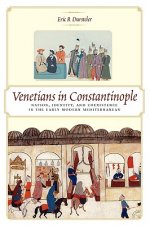
Venetians in Constantinople
36.41 € -

Penguin History Of Latin America
16.94 € -23 % -

Few
10.58 € -18 % -

Civil War
11.29 € -28 % -

Century of Palestinian Rejectionism and Jew Hatred
9.37 € -16 % -

Later Roman Empire
9.47 € -15 % -

Kojiki
29.86 € -4 % -

Kaiser Wilhelm II
27.23 € -11 % -

Seven Pillars of Wisdom
11.39 € -20 % -
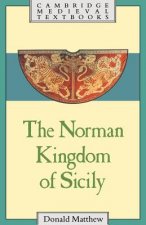
Norman Kingdom of Sicily
71.22 € -

Australia: A Very Short Introduction
9.27 € -28 % -

Regime Politics
37.83 € -

Russia and the Russians
19.36 € -27 % -

How to Write an IB History Essay
21.58 € -

History of Greek Religion
22.39 € -13 % -
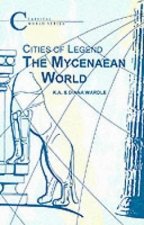
Mycenaean World
34.09 € -
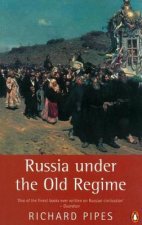
Russia Under the Old Regime
13.31 € -28 % -

French Army 1870-71 Franco-Prussian War (2)
16.64 € -10 % -

Sicily
29.05 € -8 % -

Civilization of Europe in the Renaissance
17.34 € -13 % -

Iran-Iraq War
51.55 € -10 % -

Berlin
12.90 € -22 % -

Hidden War
13.81 € -19 % -

German Order of Battle
22.59 € -

Amazons
12.80 € -18 % -

Dictionary of Ancient Egypt
29.55 € -

Marie Antoinette
13.71 € -25 % -
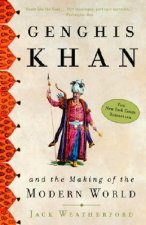
Genghis Khan
19.46 € -7 % -

Ten Myths About Israel
13.51 € -35 %
Osobný odber Bratislava a 2642 dalších
Copyright ©2008-24 najlacnejsie-knihy.sk Všetky práva vyhradenéSúkromieCookies




 21 miliónov titulov
21 miliónov titulov Vrátenie do mesiaca
Vrátenie do mesiaca 02/210 210 99 (8-15.30h)
02/210 210 99 (8-15.30h)